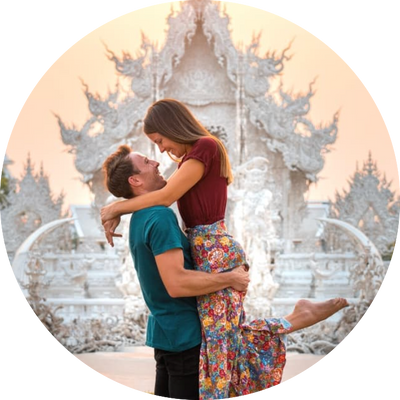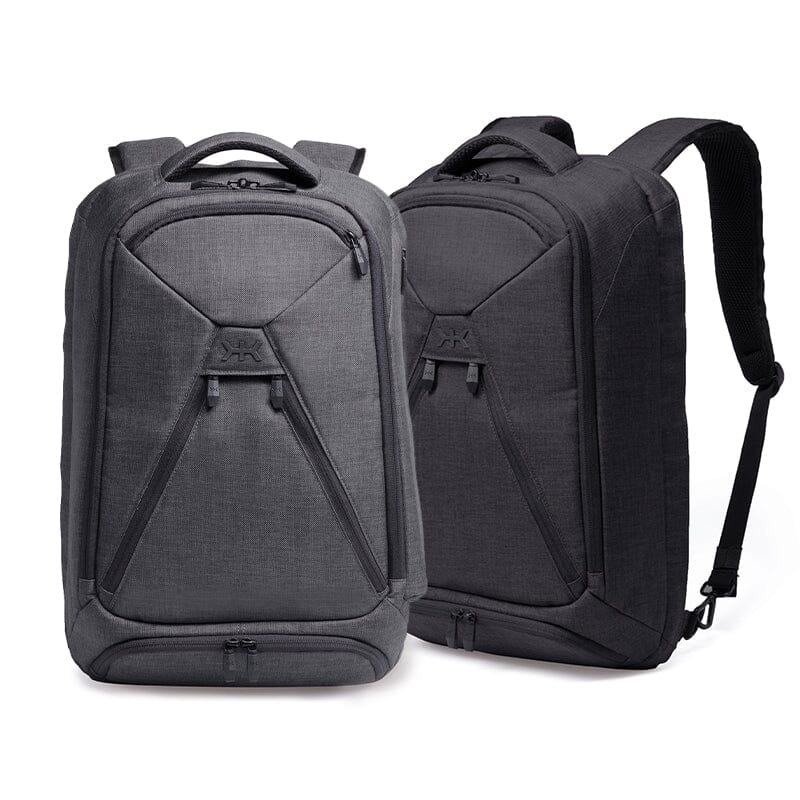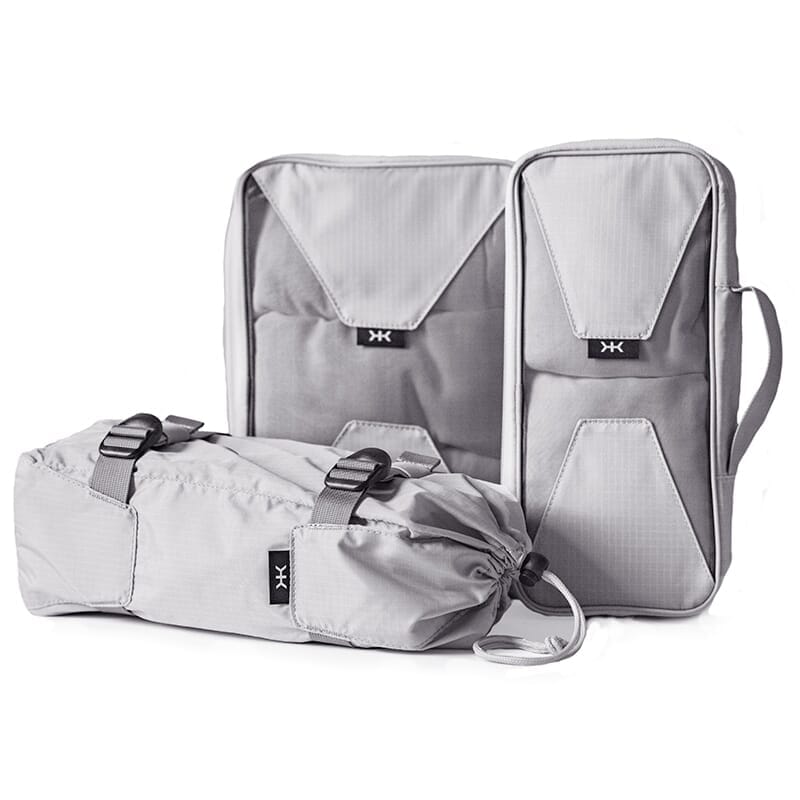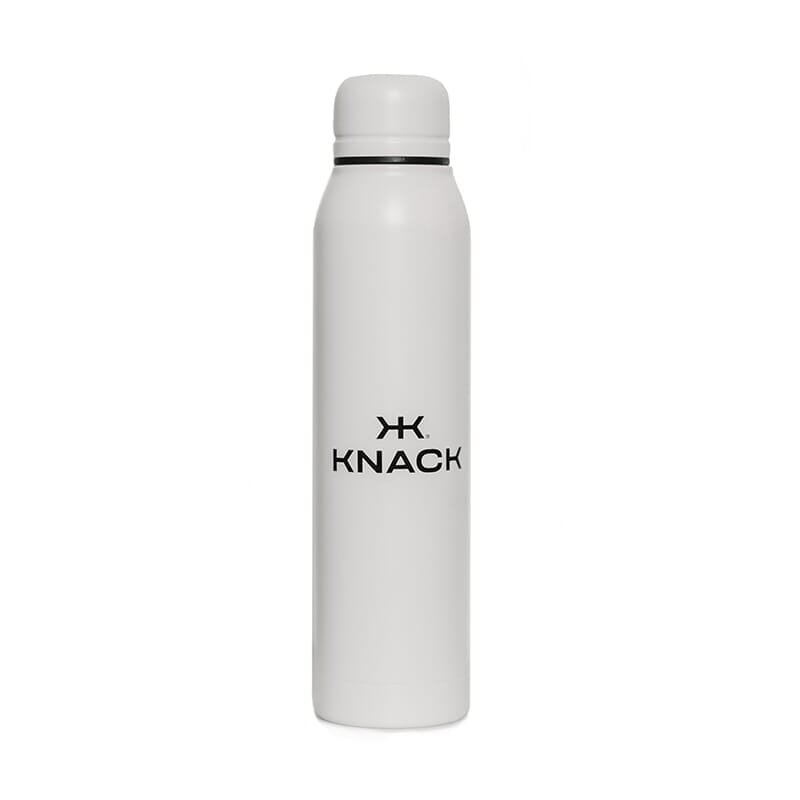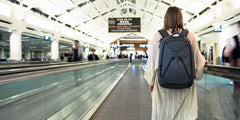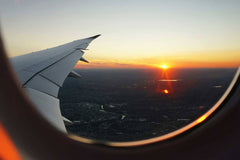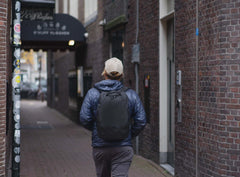If you’re anything like me, your first visit to Vancouver will end with checking real estate listings. But let's clear this up from the beginning—I'm talking about Vancouver, British Columbia (B.C), in Canada. Not Vancouver in Washington State (although that city has charm of its own). However, the Vancouver, BC, city simply has it all—dramatic mountain views, ocean breezes, a food scene that is tough to beat, and some of the mildest weather in Canada. As long as my big move to Vancouver remains a daydream, I continue to find reasons to visit every chance I get.
To truly enjoy this remarkable city, you’ll want to be ready for misty mornings, sun-drenched patios, and the occasional sideways rainstorm… all in the same day! Locals have it down to an art, favoring waterproof jackets atop linen shirts, fleece-lined leggings under summer dresses, and shoes that are functional whether hiking a trail or strolling through Gastown.
I have created this guide to help you pack smart for your first trip to Vancouver, B.C. Whether you’re headed there for business, vacation, or a bit of both, you’ll learn how and what to pack for every season. I will also share some organizational tips as well as suggestions for where to eat, stay, and visit during your time.
Seasonal Highlights in Vancouver
Spring (March - May)
Spring in Vancouver is a soft, damp bloom. March is still cool and rainy, with average highs in the upper 40s°F. By May, however, temperatures often climb into the low 60s and the city feels revitalized.
Mornings tend to be gray and drizzly, but sunny afternoons aren’t uncommon. Rain is common but tends to fall in short bursts. Accordingly, being able to add or shed layers quickly is key during springtime - you’ll want to dress for moisture and movement.
Cherry blossoms are the headliners of the season, blooming across neighborhoods like Kitsilano and Mount Pleasant. Cafes start spilling onto sidewalks, locals swap rain boots for sneakers, and Stanley Park becomes a sea of green again.
What to Pack:
-
A lightweight, waterproof jacket with a hood
-
Layerable basics like cardigans, long-sleeves, and breathable sweaters
-
A pair of comfortable waterproof shoes or boots
-
One smart-casual outfit for spring gallery nights or dinners out
-
Compact umbrella (helpful, though many locals go without, and many hotels will provide)
Rejoice, my fellow shutterbugs, for Spring is Vancouver’s most photogenic season! The Cherry Blossoms burst to life and are celebrated citywide. Most notably, the Vancouver Cherry Blossom Festival takes place from late March through late April and features bike tours, pop-up concerts, and photography contests beneath blooming trees.
March is a great month to visit to experience something more cultural. Annual events include CelticFest Vancouver, showcasing traditional Irish music, cooking, cuisine, and of course, whiskey, as well as a Francophone music event known as the Festival du Bois.
In May, runners and spectators alike can check out the scenic BMO Vancouver Marathon, which winds through downtown, along the seawall, and into tree-lined neighborhoods. Even if you don’t plan on attending, just be sure to account for it when planning your commutes around the city.
Summer (June - August)
Summer in Vancouver is as good as it gets. Average highs hover in the low 70s° and daylight stretches well past 9pm.
Rainfall dips significantly, with July being the driest month of the year. Locals pack the city’s beaches, patios, and parks with a sense of collective urgency. Summer doesn’t last long, and Canucks know how to make the most of it!
You’ll still want a light jacket in the evenings, but otherwise, plan for outdoor-friendly, breathable clothing.
What to Pack:
-
Lightweight clothing for warm afternoons (think tees, shorts, breezy dresses)
-
A light jacket or sweater for cooler evenings
-
Comfortable walking shoes or sandals with good grip
-
Sunglasses and sunscreen (yes, really!)
-
A small daypack or tote for beach days or afternoon hikes
Festival season hits its peak in the summer. Opportunities are plentiful, but my favorite is the Celebration of Light, an international fireworks competition that takes place over English Bay, drawing massive crowds across multiple weekends in July.
Live music is abundant, but I highly recommend checking out the Vancouver Folk Music Festival at Jericho Beach if your visit times out with it. This laid-back concert combines chill local vibes with scenic backdrops.
For something more unique and urban, the Khatsahlano Street Party in July brings indie music, pop-up vendors, and great people-watching to Kitsilano’s main drag. It is the largest free music and arts festival in the city.
Fall (September - November)
I love every season in Vancouver, but I consider fall to be the most underrated. Temperatures start in the low 60s°F in September and slide into the 40s by November, with steadily increasing rain.
The city’s trees put on a spectacular display as the foliage changes. Fortunately, it’s still warm enough early in the season to enjoy the parks, patios, and walks along the Seawall without bundling up too heavily.
The air turns crisp, but not bitter. Restaurants feel cozier, the arts scene picks up, and the rhythm of the city slows in a pleasant, purposeful way. For travelers like me who prefer thinner crowds and better hotel rates, this is a prime time to visit.
What to Pack:
-
A warm, waterproof jacket or coat
-
Water-resistant boots or walking shoes
-
Layered clothing (sweaters, long-sleeved shirts, scarves)
-
A compact umbrella
-
One slightly dressier outfit for dinners or events
Fall brings some of the city’s best cultural programming. The Vancouver International Film Festival runs from late September through October, featuring hundreds of films from around the globe.
For my fellow outdoor enthusiasts, the October Cranberry Festival in Fort Langley is a charming excuse to rent a car and enjoy the autumn scenery while sampling cranberry treats.
In November, art lovers are encouraged to explore the Eastside Culture Crawl, when hundreds of local artists open their studios to the public.
Winter (December - February)
This may come as a surprise, but winter in Vancouver is more about rain than snow. With average temperatures between 35°F and 45°F, it’s one of the mildest regions in Canada. That said, it’s also one of the wettest.
Expect steady drizzle, overcast skies, and puddles galore during the winter months. On the occasional clear day, the mountain views are spectacular!
Don’t bother with heavy snow gear unless you’re headed to the slopes. Instead, think urban waterproofing; warm base layers, outerwear that sheds water, and shoes that can handle the slush. Layer wisely and keep an umbrella tucked in your bag, just in case.
What to Pack:
-
A fully waterproof, insulated jacket or parka
-
Thermal layers or merino base layers
-
Waterproof boots or weather-resistant shoes with good grip
-
A compact umbrella
-
Quick-dry hat
-
Gloves, scarf, and warm socks for mountain outings (if desired)
Winter sports are easily accessible from the city, and a good reason to visit this time of year. Mt. Whistler is the major destination, but far from the only one.
The city sparkles during the holiday season, especially during the Peak of Christmas at Grouse Mountain. Here, you’ll find light displays, skating, and reindeer just a gondola ride away.
Food lovers should plan their visit during the Dine Out Vancouver Festival in late January to early February, which offers prix fixe menus at restaurants across the city.
In late January or early February, the Lunar New Year Parade transforms Chinatown with lion dances, lanterns, and cultural performances.
Organization & Packing Tips for Your Trip to Vancouver
Vancouver’s combination of urban life and outdoor adventure means packing isn’t just about what to bring, but also how to bring it.
Travel light, stay flexible, and pack with purpose so you’re ready for rainy strolls, mountain hikes, or last-minute client meetings and everything in between.
-
Use packing cubes to stay organized and maximize space: These are essential! Packing cubes are amazing for maximizing space in your luggage, but they also help keep things organized. They are not just for separating tops, bottoms, and underwear, but also for isolating damp/dirty items from dry/clean ones. This is especially helpful in such a precipitous climate as Vancouver.
-
Choose a bag that transitions from business to outdoor: Vancouver offers the perfect blend of outdoor adventure and urban sophistication. I have been a diehard advocate of the Series 2 Knack Backpack since discovering it due to its professional appearance, endless organization features, expandable sizing, and overall comfort. Also notable in this climate is that it is weather-resistant, meaning it works equally well for a hike in Stanley Park as for business meetings in Coal Harbour.
-
Roll clothing to save space and reduce wrinkles: Rolling (rather than folding) keeps your suitcase compact and ensemble crease-free. It also lets you easily grab what you need without rummaging. Pack heavier items like shoes at the bottom and lighter items on top to further preserve the condition of your formal wear.
-
Think eco-friendly and local: Vancouver has a very green mindset. The city has banned many single-use plastics, so you will want to bring a reusable water bottle (there are many local refill stations), a packable shopping tote for market days, and maybe even a set of utensils for picnics in the park.
-
Don’t forget travel-size bug spray and sunscreen: While Vancouver isn’t a tropical destination, both are handy if you're planning on venturing into any forested areas or visiting the beach. Summer evenings in particular bring out the mosquitoes.
Tips for Business Travelers
Vancouver is a major business hub for the Pacific Northwest, with a thriving tech scene, sustainable design industry, and global reach.
Whether you're visiting for a conference at the Vancouver Convention Centre or squeezing in some remote work between meetings, the city offers plenty of polished, professional, and inspiring places to work, meet, and recharge. Here are my personal favorites:
Where to Stay
-
Fairmont Pacific Rim: A frequent standout in travel rankings, the Fairmont Pacific Rim offers contemporary luxury with a creative edge and is heralded for being as conducive to business as relaxation. It’s also just steps from the Vancouver Convention Centre.
-
JW Marriott Parq Vancouver: This property is a powerhouse for business travelers, offering 60,000+ sq ft of meeting space, a 24-hour fitness center, and a full-service spa with an executive lounge. It has won accolades as BC’s Leading Business Hotel multiple times.
-
OPUS Hotel: Ideal location for remote workers and digital nomads, the OPUS is known for its boutique feel, vibrant Yaletown location, and creative, remote-work-friendly vibe. Great for travelers who want personality and neighborhood charm.
Where to Eat
-
Blue Water Cafe: Upscale seafood restaurant blending high-end appeal with a welcoming atmosphere that is informal yet elevated. Blue Water is beloved for its high-quality dishes (raw bar, responsibly sourced seafood) and polished service.
-
Miku: Known for its flame-seared sushi and beautiful views, Miku strikes the perfect balance between stylish and approachable. It’s close to many business hotels and the Convention Centre, making it a convenient and memorable choice. The space is modern and lively but still conducive to conversation, and the service is quick and professional.
-
Hawksworth Restaurant: Consistently named the city’s premier business-lunch venue. It's elegant, offers private rooms, and impeccable service.
Coworking & Meetings
-
The Profile: One of Vancouver’s original coworking pioneers, The Profile operates three community-focused locations, including a flagship in Gastown.
-
Hive Vancouver: A nonprofit coworking space in Gastown, Hive Vancouver has built a reputation as a vibrant hub for social entrepreneurs, tech creatives, and changemakers. The workspace features a bright, open layout with exposed brick and high ceilings, complemented by functional amenities like private phone booths, meeting rooms, bike storage, and a full-service communal kitchen.
-
Nemesis Coffee: Tucked into a bright, open loft space in Yaletown, Nemesis offers reliable high‑speed Wi‑Fi, ample power outlets, and a variety of seating (communal tables, window nooks, lounge chairs) that cater to both solo work sessions and small meetings.
Getting Around
Vancouver is refreshingly easy to navigate compared to most major cities. A compact downtown core, clean streets, and a traveler-friendly grid make walking a top choice for exploring downtown and nearby neighborhoods.
The SkyTrain is also fantastic. It delivers quick, frequent trips between downtown, neighborhoods, and YVR airport, and rarely experiences delays.
For a scenic twist, I like to hop on the Aquabus or False Creek Ferries, which provide regular, leisurely connections across False Creek. It is great for getting to Granville Island or Yaletown while enjoying waterfront views.
Cycling and walking are equally excellent in Vancouver. With over 270 km of bike lanes and greenways, the city supports safe, enjoyable pedaling. Of note, many hotels include loaner bikes!
Frequently Asked Questions
Do I need to pack snow gear for a trip to Vancouver?
You do not need snow gear for Vancouver if you are only visiting the city, even in the winter. Bring it only if you’re heading to Whistler or the North Shore mountains.
Can I use my US phone in Vancouver?
Most US providers service Canada as well, but you will want to check their international data and roaming rates to avoid a surprise bill.
How cold does Vancouver get in the winter?
Average winter temperatures in Vancouver are usually between 35-45°F. It’s more damp than freezing, so layers and waterproof gear are more important than heavy insulation.
What’s the best way to get from the airport to downtown Vancouver?
The best way to get to the city from Vancouver airport is to take the Canada Line on the SkyTrain. This is by far the fastest, cheapest, and most reliable option.
Conclusion
To me, Vancouver’s appeal lies in its perfect fusion of natural beauty, global culture, and urban sophistication. It’s a city where you can kayak at sunrise, take a business call from a cafe at lunch, and dine on world-class sushi by nightfall, all in one glorious day.
Packing well for Vancouver means being ready for variety. With a little planning, you’ll stay comfortable whether you’re hiking the Grouse Grind, cycling the Stanley Park Seawall, or browsing boutiques in Mount Pleasant. Rain is almost a given, but it’s nothing a smart packer with a waterproof layer can’t handle!
Remember that there is no need to overpack - just focus on versatile clothing, layers that adapt, and gear that can transition from drizzle to dinner. Whether you're here for work or leisure, an organized approach to your packing will free you up to experience all that Vancouver has to offer.

